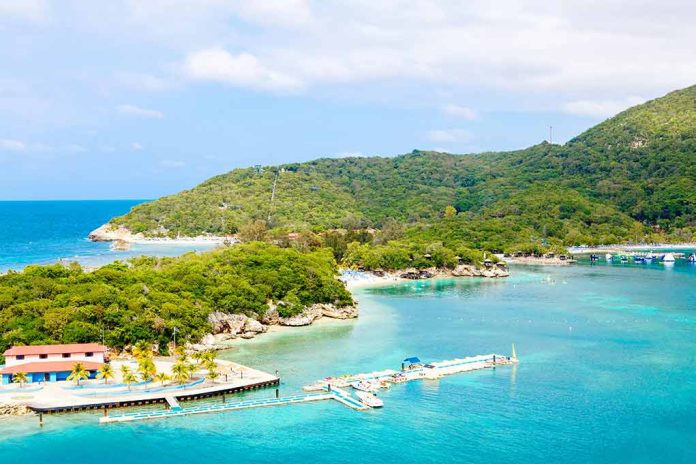
Approximately 200 Vodou practitioners were tragically massacred in Haiti, shedding light on the ongoing problem of gang violence and cultural persecution.
At a Glance
- Gang violence in Cité Soleil led to the massacre of around 200 Vodou practitioners.
- The incident highlights deep-seated cultural persecution in Haiti.
- Vodou practitioners face significant challenges, including discrimination and violence.
- The turmoil reflects broader instability in Haiti, where gang control is rampant.
Gang Violence and Cultural Persecution
A shocking massacre in Cité Soleil has focused attention on gang violence and cultural persecution in Haiti. The killings of approximately 200 Vodou practitioners were reportedly led by a gang leader who believed his son’s ill health was attributed to a Vodou curse. This attack forms part of a broader pattern of violence and discrimination faced by Vodou practitioners despite their legal recognition since 2003.
The incident also underscores the struggle for cultural acceptance in Haitian society. Vodou, a spiritual system integral to Haitian culture, is often misunderstood and subject to historical persecution. Its ceremonies, which may include vibrant music and dance, still face negative stereotypes, particularly in Western portrayals.
A staggering two million people in Haiti face emergency levels of hunger as displacement continues to surge due to gang violence.@WFP is scaling up food assistance to address immense needs, reaching 50,000 people every day.https://t.co/5I2D5yLHQ5 pic.twitter.com/kIPkwwQ3DE
— United Nations (@UN) December 2, 2024
Challenges and Resilience of Vodou
Despite the challenges, efforts are ongoing to increase the acceptance and integration of Vodou into Haitian society. The religion’s resilience and importance to Haiti’s cultural identity cannot be understated, with its practices including syncretic elements of Catholicism and animist beliefs, underscoring a legacy of resistance against dehumanization.
“Whenever the community has a big problem, they come here, because there is no justice in Haiti. You find it in the ancestral spirits.” – Cecil Elien Isac, a fourth-generation oungan, or Vodou priest.
In light of escalating gang violence, Vodou practitioners offer solace and, at times, practical aid to communities. This includes the “oungans” and “mambos” helping with urgent issues such as locating kidnapped loved ones. As violence and insecurity continue, Vodou’s appeal as a source of guidance and spiritual refuge grows.
Haiti: Voodoo attracting more believers as gang violence surge https://t.co/qY2oTLQFxn
— africanews (@africanews) May 10, 2024
Global Attention and Response
The events in Cité Soleil have drawn global attention, with various international entities seeking to highlight the grim reality faced by Haitians. Despite efforts to curb gang dominance in Port-au-Prince, violence persists, displacing over 700,000 residents and compounding Haiti’s existing humanitarian crises.
Communities across the globe need to recognize and support Haiti in safeguarding Vodou practitioners and all Haitians from such acts of violence. This includes respecting cultural diversity and countering myths surrounding Vodou, ensuring the protection of a spiritual system enriching Haiti’s cultural landscape.
Sources:
- https://www.theguardian.com/world/2015/nov/07/vodou-haiti-endangered-faith-soul-of-haitian-people
- https://apnews.com/article/haiti-religion-vodou-spirits-gangs-violence-2ddd4922f6fdd071525e92879ede2f33
- https://www.theguardian.com/world/2024/dec/09/voodoo-haiti-massacre










